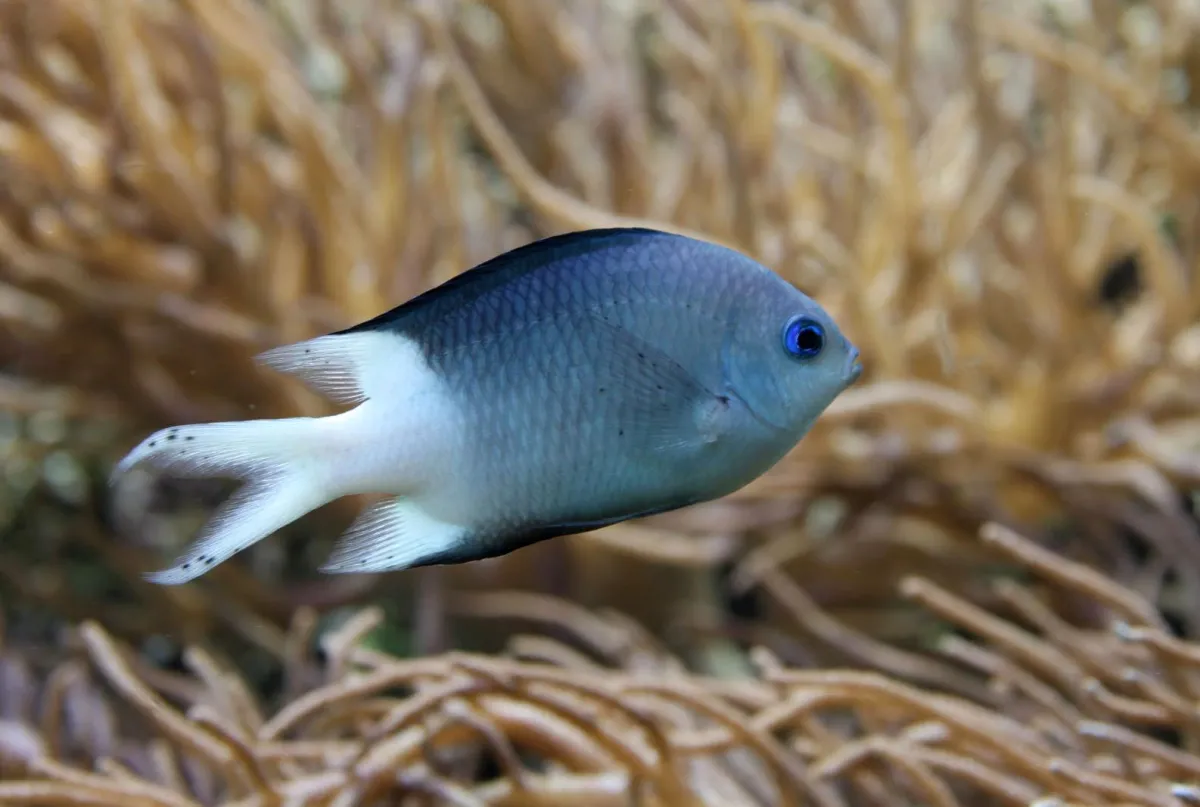Reef fish sink or swim in climate change waters

Climate change could cause local extinctions of chocolate dipped damselfish that are highly specialised to the conditions on their home reef.
“Climate change is seriously affecting the marine environment,” explains Dr Chris Fulton of The Research School of Biology who undertook the research on the Great Barrier Reef.
“For instance, we know that wave energy is a powerful force in shaping patterns of biodiversity in the ocean, and with changes in the number of storms and cyclones we are likely to see major changes in the wave energy impacting places like the Great Barrier Reef.
The team studied the chocolate dipped damselfish, one of the few species that occupies the full breadth and length of the Great Barrier Reef across a wide range of wave environments.
“We found this damselfish species has highly specialised fins and swimming abilities that are fine-tuned to their home reef. On reefs that experience high wave energy these fish have wing-shaped fins that allow them to swim fast through the crashing waves.
“However, on reefs that experience lower wave energy only a few kilometres away, fish of the exact same species have totally different fin shapes and slower swimming abilities to match their calm home waters.”
Being locally adapted to a certain set of wave conditions could be bad news for the fish if wave climates change.
“If the amount of wave action changes and fish can’t keep up with this, they either have to move to another reef or die.”
Dr Fulton fears the damselfish may not be able to re-adapt fast enough to meet the challenges of rapid climate change.
“We don’t yet know how long it takes for these fish to become adapted to their local reef, but we think these fine-tuned swimming abilities may take a while to accumulate in fish – perhaps several generations and therefore, many years to decades.
“Understanding how these damselfish may be affected gives us an insight into how climate change will affect other specialised fish species.”
This research was published in the journal Coral Reefs and is available online at http://bit.ly/damselfish
For media assistance, please call the ANU media hotline: (02) 6125 7979
Related links
- Fulton CJ, Binning SA, Wainwright PC, Bellwood, DR. Wave-induced abiotic stress shapes phenotypic diversity in a coral reef fish across a geographical cline. Coral Reefs.
- Reef fish sink or swim in climate change waters (original article), ANU Media release
- Reef fish sink or swim in climate change waters, Australasian Science
- Reef fish sink or swim in climate change waters, Phys. Org.
- The Fulton Lab - Ecology and evolution of fishes.
